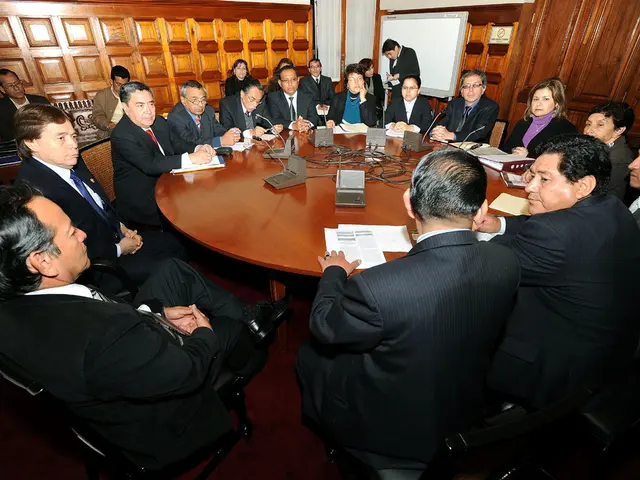Ruto halts hospital equipment procurement, shifting focus towards smart healthcare solutions
The Kenyan government has launched the National Equipment Services Project (NESP), a seven-year initiative aimed at equipping national and county public hospitals with advanced diagnostic and treatment medical equipment. The project, which began in 2025, replaces the previous Medical Equipment Scheme (MES) and promises to address past issues of frequent equipment failures and high capital expenditures.
Under the NESP, the private sector is responsible for supplying, installing, servicing, and maintaining the equipment at no upfront cost to the national or county governments. Instead, the Social Health Authority (SHA) pays suppliers for each medical service delivered using the equipment, ensuring consistent maintenance and continuous reliable services.
So far, 45 counties have signed the Intergovernmental Participatory Agreement (IPA) to participate in the project. Since its inception in June 2025, over 60,000 medical services have been delivered in 29 facilities across 18 counties, demonstrating early operational success.
Prominent private sector players have been brought in through contracts worth billions of Kenyan shillings. For instance, medical supplier Sunview Medipro International has delivered 14 modern CT scan machines to 14 counties under NESP and has completed 3,000 scans in the past month.
The NESP offers several benefits to public hospitals. It ensures continuous access to cutting-edge medical technologies without the public sector bearing large capital expenditures upfront. The model also guarantees consistent equipment maintenance and uptime, addressing past issues of frequent equipment failures under the MES program.
Moreover, the NESP represents a public-private partnership that improves health service delivery efficiency and transparency through digital infrastructure, which also helps reduce fraud in the health sector. By enabling access to modern diagnostic and treatment equipment, NESP potentially improves healthcare outcomes and patient access to specialized medical services across Kenya.
The programme guarantees 95% equipment uptime, continuous training and skills transfer for health workers, supply of reagents and consumables, regular maintenance, and timely replacement of faulty or outdated machines. Hospitals can access diagnostic and treatment tools without upfront payments, as the government will reimburse service providers for each use.
The digital transformation in healthcare is giving Kenyans faster, more transparent, and more dignified access to healthcare. With the Social Health Authority contracting more than 11,000 hospitals, clinics, and health centres, and the government building a national digital backbone for health, the future of healthcare in Kenya looks promising.
- The health-and-wellness sector in Kenya is transformed with the introduction of the National Equipment Services Project (NESP), promising to equip hospitals with advanced medical equipment for diagnosing and treating medical conditions.
- Thanks to NESP, the private sector is now responsible for supplying, installing, servicing, and maintaining equipment, reducing the burden of upfront capital expenditures for national and county governments.
- The technology consisting of digital infrastructure in the NESP is boosting efficiency and transparency in the healthcare system, potentially reducing fraud and improving healthcare outcomes.
- Fitness-and-exercise enthusiasts can look forward to advancements as well, as the NESP guarantees access to cutting-edge medical technologies, including modern CT scan machines that can help in early detection and treatment of various medical-conditions across Kenya.






